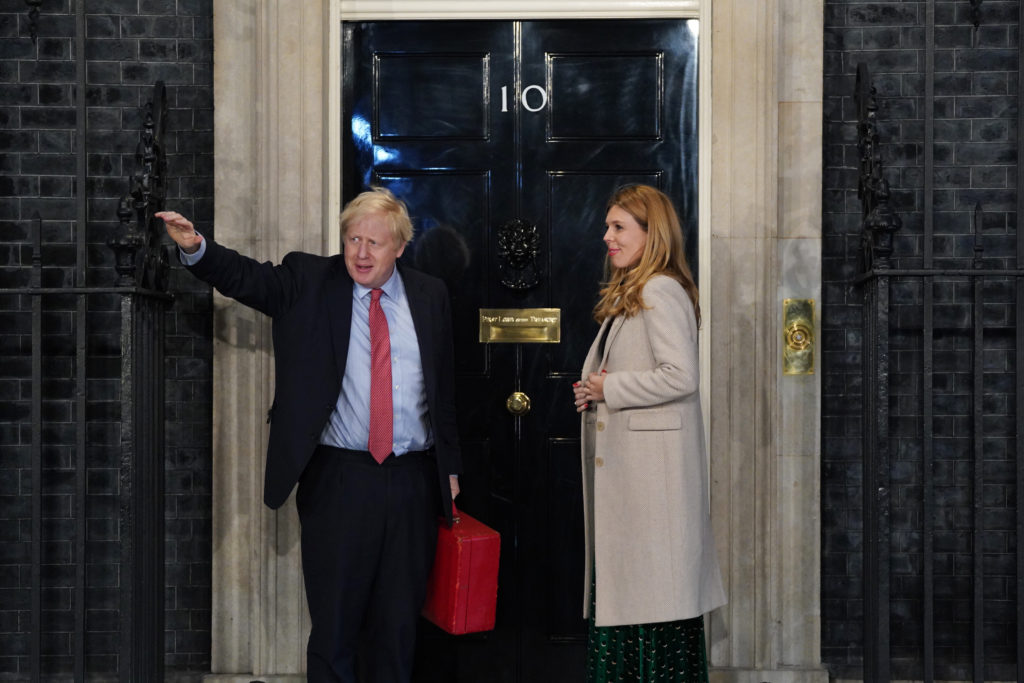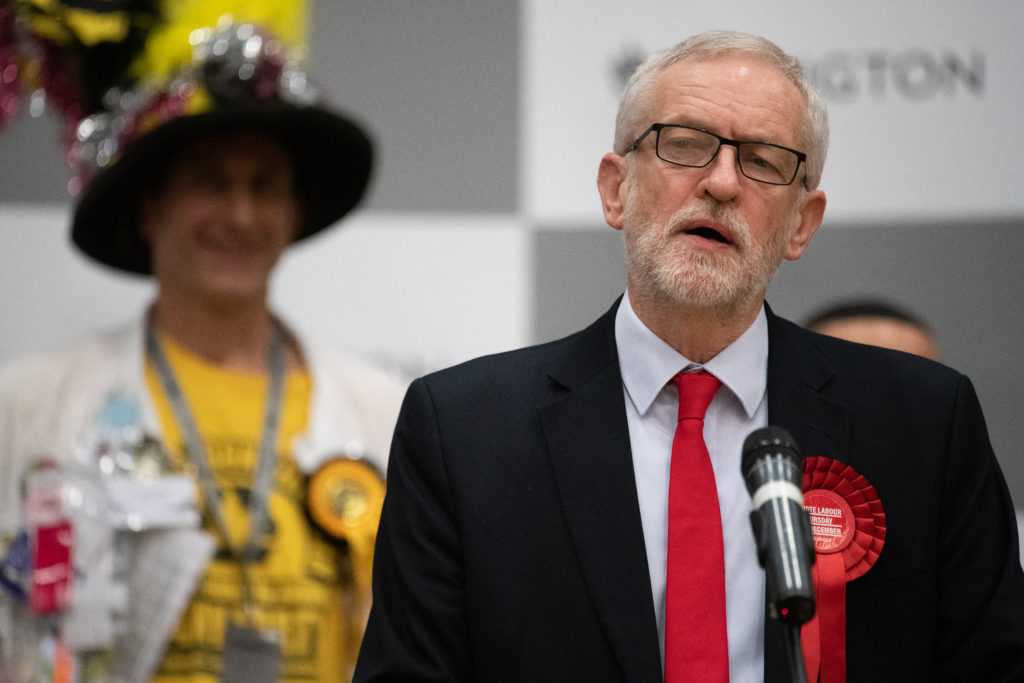BORIS JOHNSON secured an emphatic victory in the UK's general election last night as voters overwhelmingly backed his promise to "get Brexit done".
The Tories won a parliamentary majority of 78 seats - their biggest since Margaret Thatcher's landslide win in 1987.
The victory came thanks in part to major Conservative victories in traditionally Labour-held constituencies across the north of England, the midlands and Wales.
 LONDON, ENGLAND - DECEMBER 13: Prime Minister Boris Johnson and his partner Carrie Symonds enter Downing Street as the Conservatives celebrate a sweeping election victory on December 13, 2019 in London, England. Prime Minister Boris Johnson called the first UK winter election for nearly a century in an attempt to gain a working majority to break the parliamentary deadlock over Brexit. As the results roll in the Conservative Party has gained the number of seats needed to win a clear majority at the expense of the Labour Party. Votes are still being counted and an overall result is expected later today. (Photo by Peter Summers/Getty Images)
LONDON, ENGLAND - DECEMBER 13: Prime Minister Boris Johnson and his partner Carrie Symonds enter Downing Street as the Conservatives celebrate a sweeping election victory on December 13, 2019 in London, England. Prime Minister Boris Johnson called the first UK winter election for nearly a century in an attempt to gain a working majority to break the parliamentary deadlock over Brexit. As the results roll in the Conservative Party has gained the number of seats needed to win a clear majority at the expense of the Labour Party. Votes are still being counted and an overall result is expected later today. (Photo by Peter Summers/Getty Images)Jeremy Corbyn's Labour Party meanwhile suffered their worst defeat in a general election since 1935 - losing 59 seats - with Corbyn admitting after the result that he is to step down as leader of the party.
Elsewhere, Nicola Sturgeon's Scottish National Party fared well, gaining 13 seats from 2017's general election, while the Liberal Democrats suffered badly, with party leader Jo Swinson losing her seat.
Nigel Farage's Brexit Party failed to win a single seat.
Meanwhile in Northern Ireland, the DUP suffered significant losses, most notably with deputy leader Nigel Dodds losing his North Belfast seat.
At 7am, Prime Minister Johnson addressed the nation, saying that Brexit was now the "irrefutable, irresistible, unarguable decision of the British people."
He also pledged not to let down those in traditional Labour heartlands who had lent their vote to the Tories.
Johnson added that the government had been given "a powerful new mandate to get Brexit done" before adding "I think this will turn out to be a historic election that gives us now, in this new government, the chance to respect the democratic will of the British people".
 LONDON, ENGLAND - DECEMBER 13: Labour Party leader Jeremy Corbyn (R) addresses the media and supporters at Sobell leisure centre after retaining his parliamentary seat on December 13, 2019 in London, England. Labour leader Jeremy Corbyn has held the Islington North seat since 1983. The current Conservative Prime Minister Boris Johnson called the first UK winter election for nearly a century in an attempt to gain a working majority to break the parliamentary deadlock over Brexit. The election results from across the country are being counted overnight and an overall result is expected in the early hours of Friday morning. (Photo by Leon Neal/Getty Images)
LONDON, ENGLAND - DECEMBER 13: Labour Party leader Jeremy Corbyn (R) addresses the media and supporters at Sobell leisure centre after retaining his parliamentary seat on December 13, 2019 in London, England. Labour leader Jeremy Corbyn has held the Islington North seat since 1983. The current Conservative Prime Minister Boris Johnson called the first UK winter election for nearly a century in an attempt to gain a working majority to break the parliamentary deadlock over Brexit. The election results from across the country are being counted overnight and an overall result is expected in the early hours of Friday morning. (Photo by Leon Neal/Getty Images)The Tories needed to win 326 seats to secure a majority, and ended up wining a whopping 364 seats, with just one constituency left to declare.
With that majority, Johnson will likely be able to deliver Brexit and avoid the parliamentary gridlock which has plagued Westminster for the past three-and-a-half years, but the precise nature of that Brexit remains to be seen for the time being.
With Johnson remaining at the helm, the UK is due to leave the EU on January 31.

